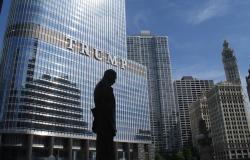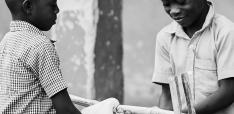The South Africa G20 signals Global Diplomatic Rebalancing amid Trump/US Disruption, Absenteeism, and Erraticism

Andrew Cooper, University Research Chair at the University of Waterloo, is in Johannesburg for the G20 Summit, November 22-23, 2025.
US President Trump has cast a profound if distant shadow on the South African G20. Diplomatically, the Trump/US approach has exhibited a mix of disruption, absenteeism, and erraticism. A combination that instead of imposing a dominant influence over the summit, ended up exposing the limitations of this type of negative, disengaged and disconnected approach.
The only constant in the US approach has been the stigmatization of South Africa, President Cyril Ramaphosa and by extension South Africa’s presidency of the G20. One main focus, consistent with a wider campaign of disinformation, has been a barrage of attacks on South Africa for the treatment of the (minority) white population and Afrikaner farmers in particular: to the point of allowing some of the latter group refugee status in the US.
On the G20, Trump has severely critiqued both the principles and the agenda privileged by South Africa. On the former, Trump rejected the overarching themes of the summit: solidarity, equality, and sustainability. And on modalities, Trump/the US continued to argue that the G20 should consist of a small group of countries and agenda items. Trump labelled the South African summit as bloated with ‘hundreds’ in attendance.
In terms of diplomatic practice, Trump ratcheted up the negative response, but with an overall pattern of disengagement mixed with selective engagement. To begin with, Trump said that although he would not go to the summit, the US would be represented at the summit by the Vice-President, J.D. Vance. In the immediate run-up to the summit, however, Trump declared a complete boycott in terms of the summit.
Yet, if disruption was the dominant face of the Trump/US approach, it must be pointed out that the US boycott has not been applied in a fixed manner. Up to October, the US was represented in the finance track of the G20 preparations (although US Secretary of the Treasury Scott Bessent skipped meetings scheduled for South Africa). Moreover, there was ample representation beyond the governmental level through engagement groups. Indeed, unlike the controversy of handing over the presidency to the US regarding the hosting of the 2026 summit, the Business (B) 20 contained a large US contingent, with a smooth handover regarding the 2026 meetings. And at odds with the disruptive approach on a wide variety of other topics (from energy transition/climate justice, gender, debt relief, among other important issues), the US (in a video message) pledged $4.6 billion to replenish the Global Fund fighting HIV, tuberculosis and malarial.
Instead of adding leverage over the G20 summit, nonetheless, the US appreciably lost ground. At one level, the Trump/the US push to control the modalities of the summit was negated by South Africa’s diplomatic responses. Although Trump/the US pushed for the South Africa G20 to conclude without a declaration, the summit not only issued a declaration but did so (in an unusual move) on the first not the (concluding) second day of the event: notwithstanding some rearguard action by Argentina from the Milei government, Trump’s strongest ally at the summit, So decisive was the rebuff that the South African media commented that Trump/the US was ‘given a bloody nose,’ and that the G20 was a success ‘with or without’ the US.
Reinforcing this impression concerning a setback, the push by Trump/US to have the presidency handed over to a minor official (the acting ambassador at the US mission in Pretoria) was decisively rejected. Indeed, in a substantive downgrade, South Africa moved the hand over to a low key ‘ceremony’ between South African and US officials of similar status at the offices of the South African Ministry of International Relations & Cooperation.
But it needs to be added that the implications of the South African G20 go well beyond the intricacies of diplomacy in the context of summit chorography. At an organizational level, the G20 highlighted several dimensions that signal the extent to which global diplomacy is going through an accelerating process of rebalancing. The obvious sign of change is the bringing in of Africa to the centre stage. That said, suggesting that South Africa represents Africa is a stretch, even amid the efforts of South Africa to connect the G20 to Africa. One means of doing so is to showcase the role of the African Union, now a full member of the G20. Another is to highlight Africa in all of the proceedings of the summit, symbolized by the 52 references to Africa in the G20 Declaration.
Adding to the Africa-centrism of the South Africa G20 is how several other non-African countries have stepped up on initiatives related to the continent: efforts arguably made easier without the distraction of the presence of Trump. Some of these initiatives were driven by specific member countries of the G20, notably Germany’s leadership (with South Africa) of the G20 Compact with Africa For Economic Growth and Jobs.
The institutional openings allowed to institutions with exclusive Global South membership is an important albeit differentiated feature as well of the South Africa G20 summit. Here again, though, absenteeism plays a part in what ‘clubs’ gained profile and which in relative terms ere diminished. Even without the presence of China’s President Xi Jinping and Russia’s President Vladimir Putin, the BRICS plus group had a large contingent of members in attendance: enhanced by the presence of Egypt, Ethiopia, and the UAE in attendance as guest countries.
Still in profile it has been IBSA (made up of India, Brazil and South Africa) that had the more robust presence. The leaders of the three countries (Prime Minister Narendra Modi, as well as Presidents Lula da Silva of Brazil, and President Cyril Ramaphosa held a well-published meeting: with promises of deeper cooperation. Beyond issue-specific activities, the revival of this institutional format is salient as defining these countries as different from China and Russia: democratic countries without the status of permeant (veto-wielding) UNSC membership.
To signal that global diplomacy is rebalancing both in agency and institutional structures is not, to be sure, to suggest that this process will be a smooth one. The South African G20 defined its priorities in very broad issue-specific terms, yet with an ambit that kept largely to the sidelines many of the core geopolitical issues: Ukraine, Gaza, and Sudan.
Further, even in organizational terms, the trajectory and the outcomes of the South Africa G20 summit will face an inevitable backlash from Trump/the US. As it is, with respect to the issuing of the declaration against objectives by Trump/the US led to a narrative that there was a need to ‘restor[e] legitimacy to the G20 in the US’s 2006 host year.’ So whether or not there well be some sort of focused retribution to South Africa for the way that the 2025 summit was managed, it is no guess work to predict that the rebalancing dynamic will face a serious test with contestation most marked when the G20 takes place in December 2026 at the Trump National Doral Miami golf resort.
Photo by Carlos Herrero


